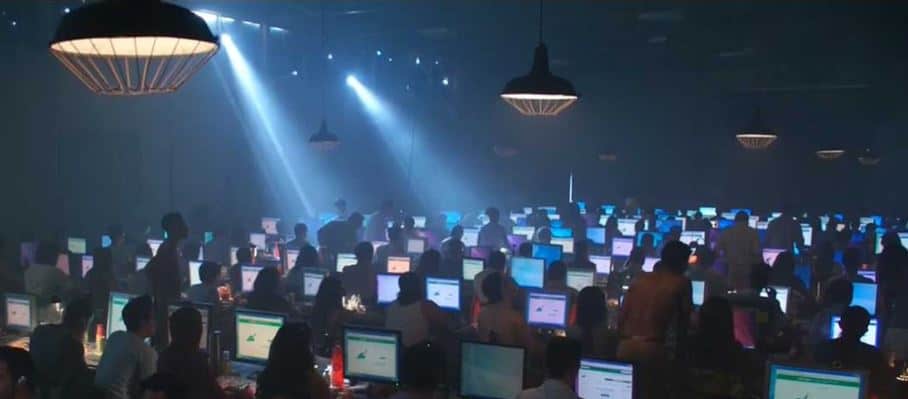When we think about how this pandemic has affected our society in so many ways, and the new normal we live in, please spare a thought for fraudsters like Melnik. The repo company has already come to take back his brand new leather sofa he was financing since he fell behind on the payments.
Meanwhile, he has had to cut back his cable subscription from premium to basic, while having to put on hold the brand new Smart TV he had his eye on. Truly, these are trying times.
Speaking to reporters from his apartment in this northern Ukrainian city of 2 million or so, Melkink explained that that with “shelter in place” laws and other restrictions prohibiting the mass gathering of people together in crowds, the human-driven fraud rings he relied upon to attack online businesses at scale can no longer operate. It’s been a big hit to his bottom line.
Melnik operated these so-called sweatshops in places such as the Philippines and Singapore, where labor costs are very cheap. These large groups of low-paid workers carry out targeted attacks on behalf of fraudsters like Melnik using a large network of devices from a centralized location. Their financial incentive is based on sheer volume, as they get paid per attack, typically earning about $1 USD per hour. Without these large teams of low-cost workers available, Melnik cannot launch his attacks efficiently at scale.
“This has been terrible for my business,” he added, in between sips of vodka at 11:00 am while sitting on his old, patched-up couch. “Trying to get hundreds of people to do this, each individually operating remotely from their own homes is simply not workable. I need them all together in one place working in a coordinated fashion.”
Even as restrictions are being eased in some jurisdictions, the old days of employing a team of 30 or more all working in a small, restrictive space are long gone. Like for all of us, the offices that fraudsters worked out of will likely never be the same.
Melnick said he has considered finding some cheap and easily implemented automated scripts from the various hacker marketplaces on the Dark Web, but these are generally too easy for businesses to identify and stop. And he has even run into some fraud technologies that can detect the trained and sophisticated bots that try to mimic human behavior.
“Chort vizʹmy, I can’t even go down to the stadium to watch Metalist play since all the sports are canceled,” he lamented. “When will this nightmare end!”
Melnik said he longs for the day when he can leave his apartment, feel sunlight directly, and operate his fraud rings as normal.
Of course, in times of pandemic or not, Arkose Labs can protect your business against fraudsters like Borysko Melnik, whether they use automated attacks, human sweatshops or act as sophisticated lone attackers.
As for Melnik, he may soon be looking for a new line of work.
“Ach, what is criminal such as myself going to do if I cannot commit fraud?” he asked. “Perhaps I will take up acting!”

